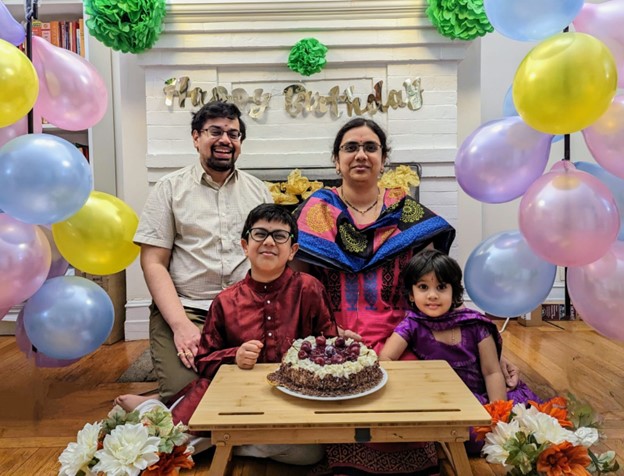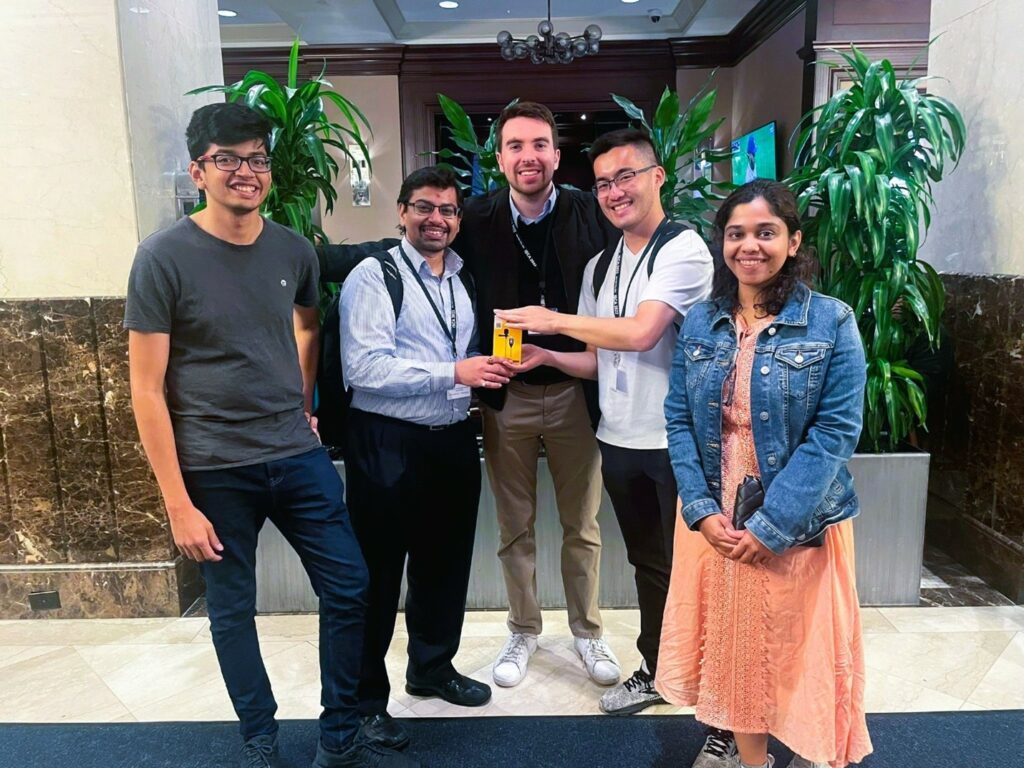Self-Advocacy Played Important Role in My Journey
Blavatnik Regional Awards Laureate Raghavendra Pradyumna Pothukuchi, PhD, had to advocate for himself to find the right work-life balance. He offers advice so fellow postdocs can do the same.
Published September 17, 2024
By Raghavendra Pradyumna Pothukuchi, PhD, Postdoctoral Fellow, Yale University
2024 Blavatnik Regional Awards Laureate in Physical Sciences & Engineering

We all enjoy science and research, but it’s hard to deny that academic life is grueling. This is especially so as a postdoc, which is a great springboard for one’s career but also brings unique challenges.
Making the most of a postdoc inevitably requires significant effort. Couple this with personal needs, goals, and responsibilities, and you have a fragile contraption of sorts, ready to fall in many ways.
My choice of being a postdoc was born out of an abruptly terminated job search during the COVID-19 fallout. When I graduated from the University of Illinois at Urbana-Champaign in 2020, my kids were 1 and 4, and my dear wife, a fellow PhD in computer science, would soon opt out of work due to long COVID.
My postdoc would be on brain-computer interfaces, and classical and quantum frameworks for cognitive models. It’s exciting — but very new and challenging. I had to balance my research with personal commitments including childcare, my wife’s health, providing long-distance support to my parents living in my home country of India, traveling to help my father while he was being treated for cancer, and, of course, managing my own well-being.
Finding Work-Life Balance
One way that has helped me in making the postdoc process work, is self-advocacy. You are (or can be) your best ally and advocate on issues that matter to you, whether they are about yourself or those that you care about. The definition of being a self-advocate means “identifying your needs and communicating them clearly to help others understand how they can support you”.
There are many valuable resources on self-advocacy, including those at the National Postdoctoral Association (NPA). I’d like to share what I learned from my experience. The first step to self-advocacy is to identify what you need, professionally and personally. These could be resources, compensation, special needs, processes, projects you should be on, or even assistance from people, like teammates and mentors. This step is not easy—it requires time and thought.
One could start with high-level tangible goals such as, readiness for academic job searches within two years, allocating hours for childcare, improving wellbeing in a community you care about, etc.; then move to identify the specific needs to accomplish them. It’s helpful to identify and talk to various stakeholders, such as family and mentors, with whom your plans intersect. On the professional side, a good starting point is the postdoc mentoring plan, which makes career goals and means explicit.
Advocating for Yourself
In my case, I needed a mentor who understood my situation, a system with flexible schedules, reasonable compensation and benefits to support my family, and the leeway to explore new fields. These needs weren’t exhaustive or static, since life changes. However, to the extent possible, it pays to be foresighted so that you don’t appear capricious or importunate, and importantly, that you ask for what actually helps you.
The next step is to identify the people that you would communicate your needs with. This is critical. They should be able to provide what you need and be willing to help. In several cases, this could be your mentor, but it doesn’t have to be. For example, while my mentor was the right person to talk to about compensation and work schedules, it wasn’t so for childcare or other benefits that are set by my university.
Sometimes when asking for policy-level changes, it helps to find others who share your cause. This could be your local postdoctoral association, or the NPA. When I was a grad student, I was concerned about the wellbeing of students in my academic community (computer architecture). At a conference, I met with a fellow student who shared the same cause, and our joint effort led to the creation of a new student association with this mission, CASA. This wouldn’t have been possible if I hadn’t met my co-founder.
The last step is to articulate your needs. This means clearly and politely stating your needs, participating in good faith, and being open. If needed, convey the value you bring to the group.
Identify Your Non-Negotiables

It’s useful to identify which of your needs are non-negotiable. However, it’s also possible that some needs can’t be met, at least not fully or immediately. Be open to alternatives. In my case, my starting postdoc salary was good but not great for my family needs. I brought this up with my mentor, who understood my situation and recommended that we apply for a fellowship, the NSF and CRA computing innovation fellowship, which I received. This took time, but it helped immensely, even beyond the finances.
I hope my experience inspires you to self-advocate. My postdoc journey didn’t happen without making hard choices or giving up things I loved. But I’m glad about my progress—personal and professional (the Blavatnik Regional Award for Young Scientists being one!), and the things I was able to hold on to, and pickup. Self-advocacy played an important role in my journey.
Looking forward, I will continue to practice it as I transition to a tenure-track faculty position at the University of North Carolina, Chapel Hill.
About the Author and the Award
Raghavendra Pradyumna Pothukuchi, is a 2024 Blavatnik Regional Awards Laureate in Physical Sciences & Engineering
You can learn more about him and the Blavatnik Awards at Blavatnikawards.org
This piece published on the National Postdoctoral Association member blog is part of 2024 National Postdoc Appreciation Week. Current Academy Members can receive a 20% discount on a National Postdoctoral Association postdoc individual membership by emailing info@nyas.org and requesting the NPA membership discount code
